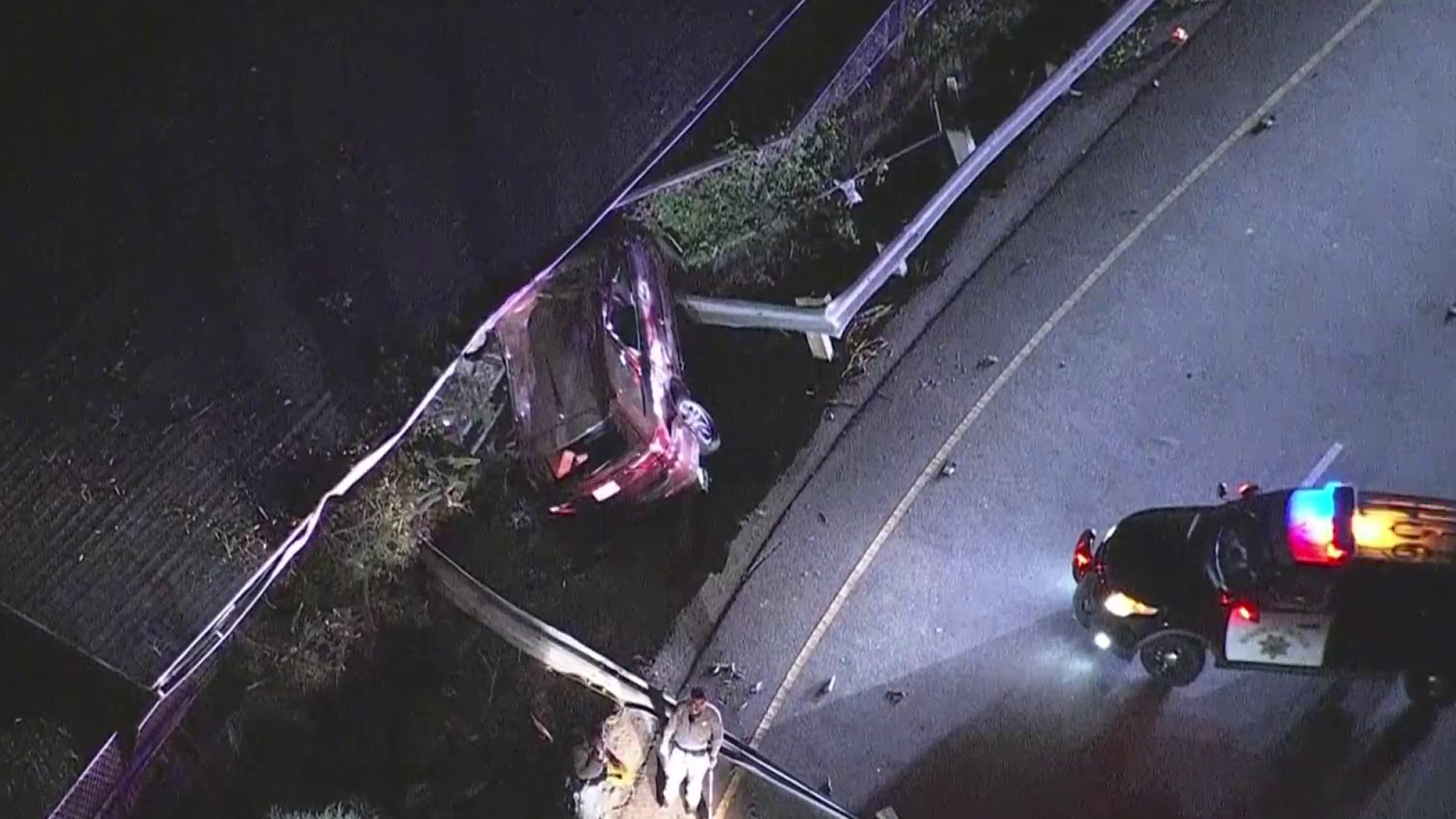The New Year is just around the corner, and while that means a bunch of New Year's resolutions, it also means new laws.
The California Department of Motor Vehicles has released a listr of new laws that will be going into effect starting Jan. 1, 2018, so anyone who is not planning to ditch their vehicle next year should be aware of how those laws will affect them.
Below is a list of the new laws and a brief description of each.
Cannabis Use in Vehicles (SB 65)
This law prevent drivers or passengers from smoking or otherwise consuming marijuana products while driving or riding in a car. The DMV will add negligent driver points to those who violate this law. Additionally, the DMV will update the California Driver Handbook, the Motorcycle Handbook and the DMV website to include information about the new law.
Seatbelts in Buses (SB 20)
Beginning Jan.1, 2018, this law requires that a passenger on a bus that has seatbelts use those seatbelts. This law also prevents parents, legal guardians, or anyone operating a bus from driving any child who is at least 8 years old or under 16 years old, or allowing them to be driven in said bus, unless that child is properly restrained by a seatbelt or other restraining feature that complies with federal safety standards. A violation of this law could result in a ticket.
News
Top news of the day
DUI - Passenger for Hire (AB 2687)
Beginning July 1, 2018, anyone who gets paid to transport passengers in their personal vehicles (think Uber and Lyft) cannot have blood alcohol level of .04 or more when there is a passenger inside. This means those drivers will need to maintain higher safety standards when transporting people. The DMV will suspend the license of anyone who violates this law, and commercial drivers (think limos and taxis) will be receive a disqualification.
Parking Violations for Registration or Driver License Renewal (AB 503)
This law is intended to benefit low-income people by creating a process for them to repay fines for outstanding parking violations prior to the violations being reported to the DMV. The law also allows the registered owner of a vehicle to file for Planned Non Operation status (meaning you plan to store and not operate your vehicle during the next renewal year) when there are unpaid parking fees in the vehicle's record.
HOV Decal Program (AB 544)
Starting Jan. 1, 2019, the law creates a decal program to let low-emission vehicles drive on the carpool lanes, regardless of how many people are inside the vehicle, for a four-year term. Access to carpool lanes for cars with green and white decals will expire Jan. 1, 2019. Anyone issued one of those green or white decals in 2017 or 2018 will be able to reapply for a decal in 2019 that will give them access to hig-occupancy toll lanes through Jan. 1, 2022.
Disabled Person Parking Placards and Plates (SB 611)
This law makes changes to the administration of handicapped parking placards and license plates, including requiring applicants to provide proof of their true full name and birthdate. The law also limits the number of replacement handicapped placards - to four in two years - that people can request without obtaining a medical certification. The law also requires the DMV to set up a renewal process that requires people to return a renewal notice by mail every six years. Current permanent disabled placards expire June 2019 and are automatically renewed every two years. Placards expiring in June 2023 will be the first to be subject to the new renewal rule. People will not be required to get a medical certification as part of the renewal process.
Motorcycle Training Courses (AB 1027)
This law will allow the DMV to accept a certificate of completion of any motorcyclist training program approved by the California Highway Patrol in lieu of a DMV-issued test. People who are under 21 will still be required to complete a novice motorcycle safety training program to get their class M1 or M2 license or to get a motorcycle endorsement.
Firefighter License Plate Program for Surviving Family Member (AB 1338)
This law allows spouses, domestic partners or children of fallen firefighters to individually apply for and get "California Firefighter" license plates, which before were only issued to current or retired firefighters and given only to surviving spouses when a firefighter died. Also before, family members of fallen firefighters were only allowed to keep one "California Firefighter" license plate as an heirloom.
Private Carriers of Passengers (SB 19)
The law transfers regulatory authority over private carriers of passengers, like church and youth buses, from the California Public Utilities Commission to the DMV.
Road Maintenance and Rehabilitation Program (SB 1)
Starting Jan. 1, 2018, the DMV will start collecting the "Transportation Improvement Fee" at the time of a vehicle's registration. The fee will run between $25 and $175, depending on the vehicle's current value. Anyone with a renewal notice due on or after Jan, 1, 2018, will be subject to the fee. Starting July 1, 2020, the law also requires the DMV to start collecting a "Road Improvement Fee" for zero-emission vehicles with a model year of 2020 or later.
Below is a breakdown of how the DMV will determine what to charge you for the Transportation Improvement Fee:
Vehicles Market Value Range Transportation Improvement Fee
Between $0 and $4,999 $25
Between $5,000 and $24,999 $50
Between $25,000 and $34,999 $100
Between $35,000 and $59,999 $150
$60,000 and higher $175



